Off-Broadway, a Kansas playwright meditates on the labor that defines us
Majkin Holmquist’s "Stargazers" concludes its five-week run at New York's Connelly Theater this week.
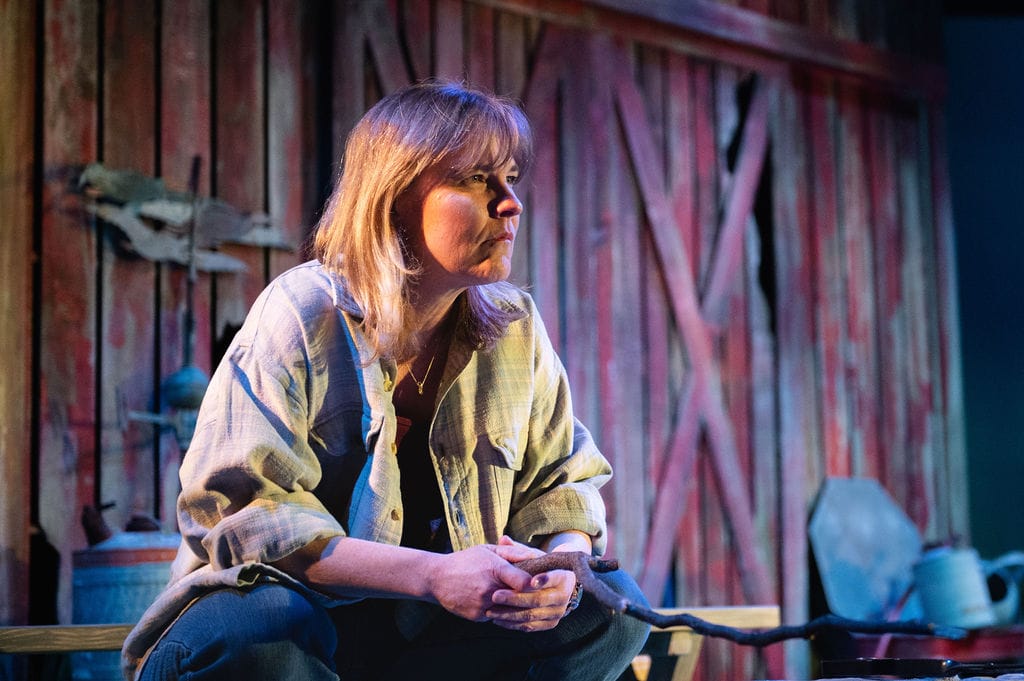
There’s a line early in Majkin Holmquist’s play “Stargazers” that keeps running through my mind:
“We’ll make the middle of nowhere finally be the middle of somewhere.”
Holmquist knows about nowhere, and how living here makes it somewhere, a mostly private place where farming and grief, labor and nature come to us at the pace of plowing. She grew up on the family farm established by her great-great-grandfather near Smolan in Kansas’ Smoky Valley, graduated from nearby Bethany College, and traveled from her Lindsborg home to her Salina teaching job for several years until her writing took her to graduate school at the Yale School of Drama. And this month, her work landed her off-Broadway.
Along with other former Bethany friends, I saw “Stargazers” last week at the Connelly Theater in New York, where it plays through Friday. It is being presented by Page 73, a New York nonprofit with a mission to “launch the careers of playwrights” by introducing audiences to “the most talented playwrights who have yet to have an off-Broadway premiere.”
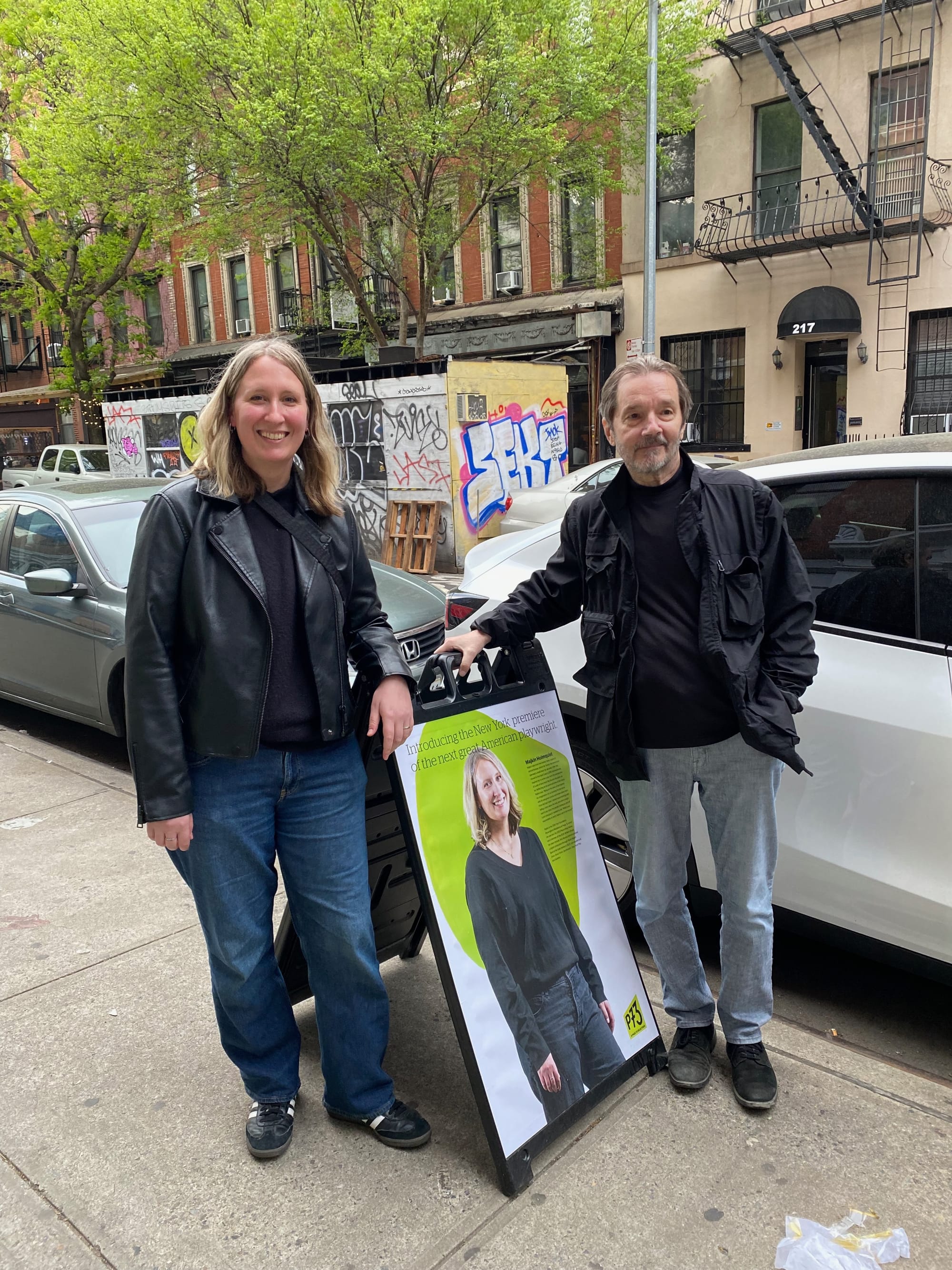
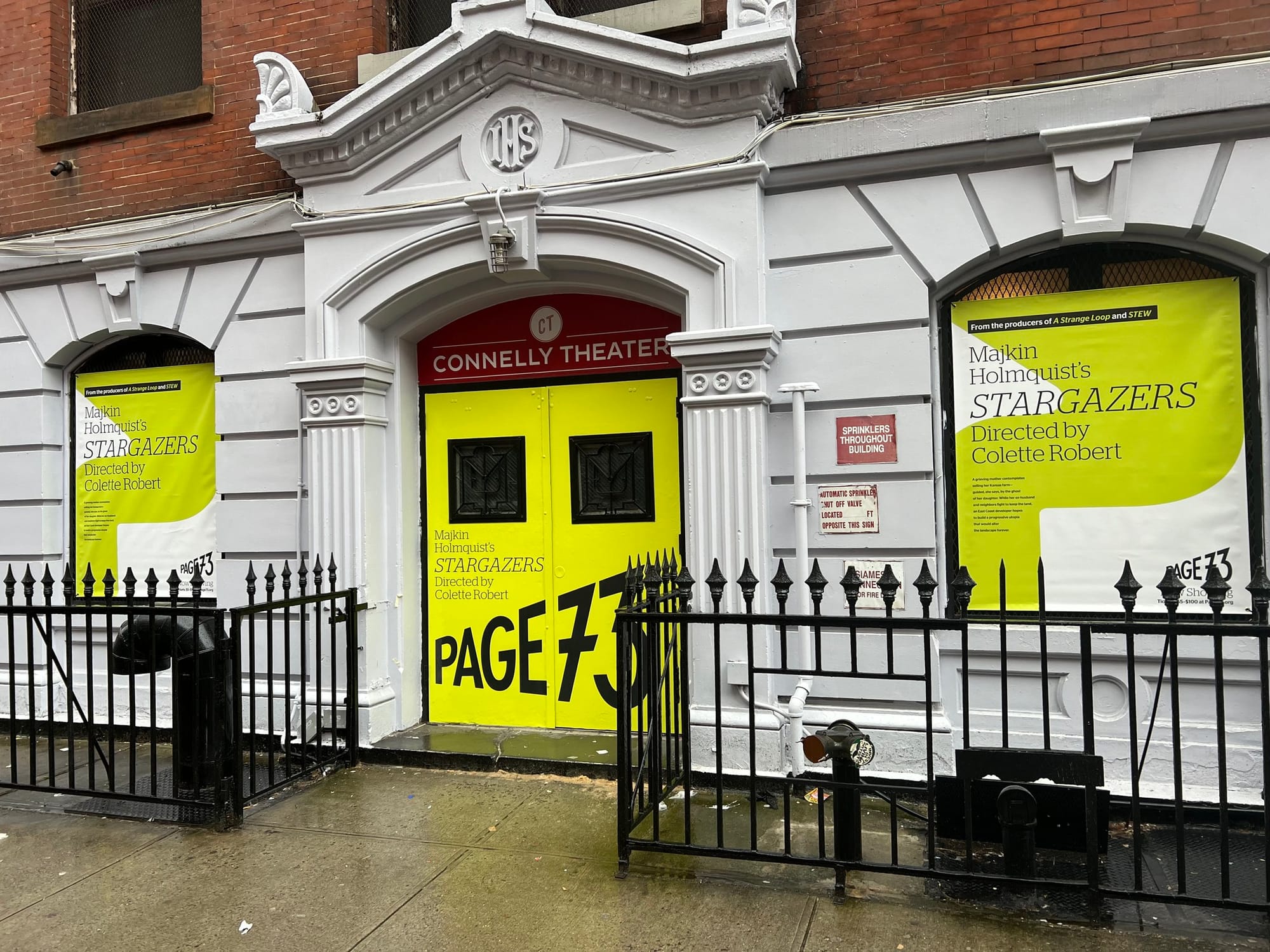
Majkin Holmquist poses with her Bethany College theater professor Greg LeGault in front of the Connelly Theater in New York's East Village. Photos by Lori Brack for the SHOUT.
A person who makes a play is a “wright” — a word the dictionary calls archaic and means “a maker or builder.” It’s used these days as the second element in words like shipwright and wheelwright. Follow it back and find an Old English word that simply means worker.
When I read a draft of the play last July, it was clear Holmquist constructed a statement about home and homesickness, land and family, grief and how to imagine a future. In the flesh on that New York stage, however, it’s work that I’m left with: the work of women and farmers, of developers and construction workers, of teachers and actors. Maybe because we’re all Kansans — Holmquist and her characters (eight of the eleven roles), and me and my friends who traveled to New York together — labor binds us, defines us.
Our free email newsletter is like having a friend who always knows what's happening
Get the scoop on Wichita’s arts & culture scene: events, news, artist opportunities, and more. Free, weekly & worth your while.
No spam. Unsubscribe anytime.
The play opens on images of work: a ramshackle red barn and the loud motor of a tractor. We are gathered close in the small theater space, invited into the farming community. Holmquist’s characters are familiar, and she includes the audience in the circle of friends around a firepit and as witnesses to a marriage dissolved in tragedy when a daughter dies working on the farm.
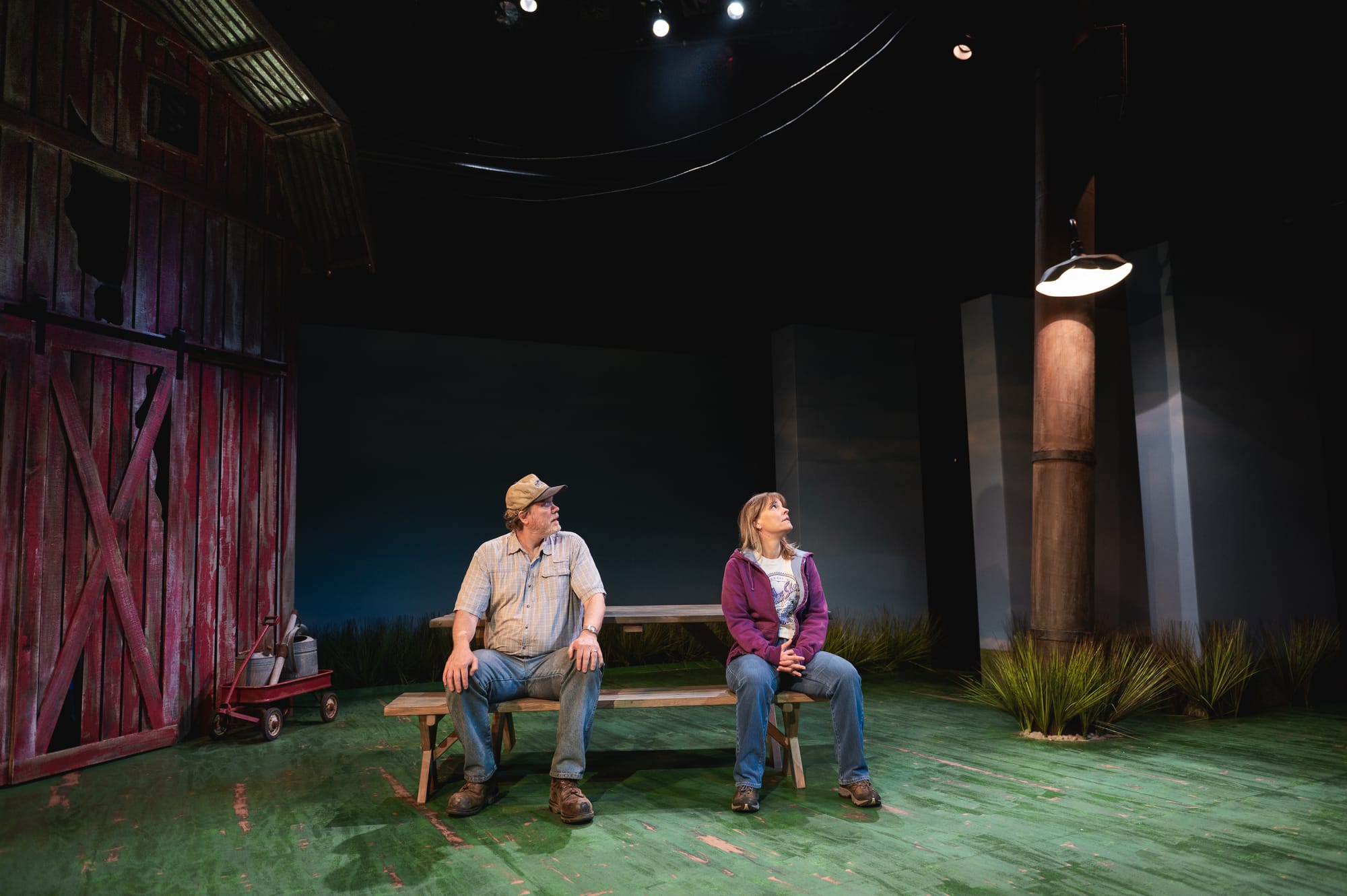
Majkin taught me to ask “Whose play is this?” when I read a script or see a show, and this play is Rita’s. She is the mother of a daughter killed ten years earlier while hauling wheat in a grain cart for summer harvest. The farm has been in Rita’s family for 150 years, which she reminds the developers who want to buy it. She’s selling the land after abandoning it — and her marriage — soon after her daughter’s death.
The play also belongs to Cate — the dead daughter — who haunts her mother and appears, perhaps, in the electricity that powers the farm’s yard and barn lights. Rita says she is guided in her decision to sell by Cate’s illuminated communications.
Rita hangs around the firepit and picnic table in front of the barn thinking of Cate, and when she doesn’t want to have a conversation about selling up, which is often, she repeats, “I got things to do,” and heads off to do them. Holmquist builds on how our Kansas landscape gives us a lot to do — cleaning up, selling, teaching, plowing, mowing — relentlessly. In “Stargazers,” work kills Cate and sets into motion what Holmquist calls a lament, for a farm and a way of life carried away by big-money developers and their sales pitches, which shift depending on the fleeting interests of the time.
But the big-city businesswoman who represents her employer’s plan to create a “boutique utopia” on the land is not the only character making a pitch to Rita. Cate’s friend Jessica deeply desires to farm the land Rita has abandoned because her father doesn’t take her seriously as a farmer. She, like Cate before her, wants to prove she can do the work, make a go of it.
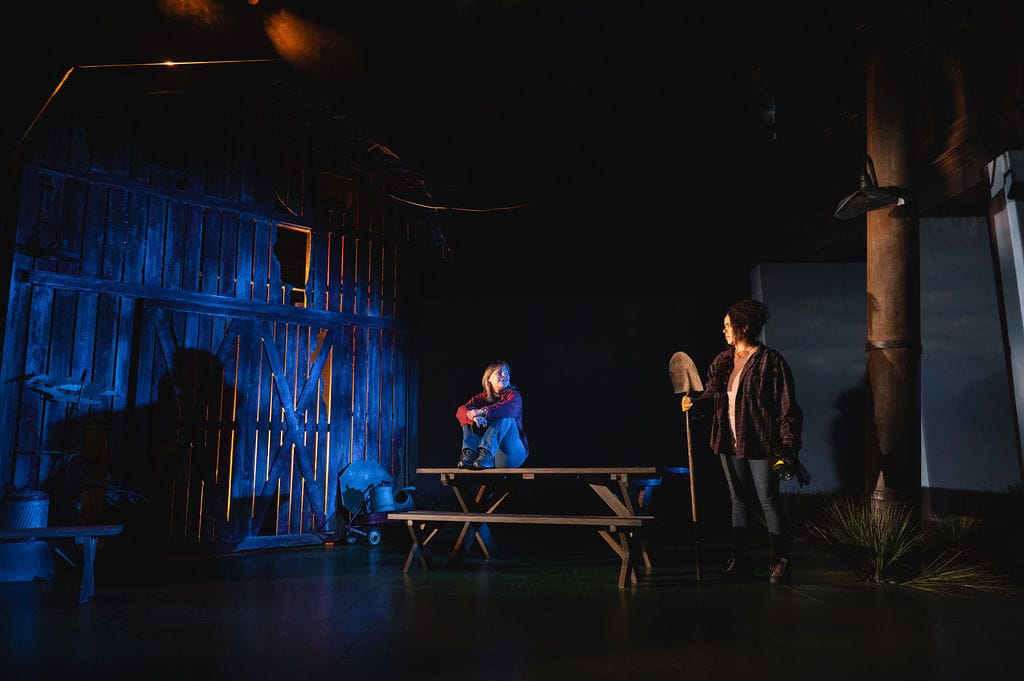
There’s something essential about seeing one’s environment and people on a stage, hearing our language in the mouths of professional actors, and recognizing the names of places we’ve been — Marquette, Coronado Heights, Salina, K-State. It’s a revelation that people from major cities and mythic landscapes have enjoyed for a long time. Holmquist’s work asserts that farm labor and Kansas folk are also crucial to the American story.
Near the end, a character says, “If you look up, you can be anywhere,” echoing the opening “nowhere” and “somewhere.” These words underscore the universal value of place and how living and working on the land is an individual choice that simultaneously creates a culture we may see most clearly when we’re elsewhere.
Lori Brack lives in Lucas, Kansas, two blocks from S.P. Dinsmoor's Garden of Eden art environment and 14 miles south of the geodetic center of North America. She is the author of three books of poems: "A Case for the Dead Letter Detective" (Kelsay, 2021), "Museum Made of Breath" (Spartan, 2018), and "A Fine Place to See the Sky" (Field School, 2010). She has worked as the coordinator of an artist development project in Salina and is currently a freelance arts worker and writer.
Support Kansas arts writing
The SHOUT is a Wichita-based independent newsroom focused on artists living and working in Kansas. We're partly supported by the generosity of our readers, and every dollar we receive goes directly into the pocket of a contributing writer, editor, or photographer. Click here to support our work with a tax-deductible donation.
❋ Derby man has the kind of voice that turns heads — and chairs
❋ Socializing while sober: how some Wichitans are cultivating alcohol-free communities
❋ As a small creative business closes, the owner mourns
❋ Painting through it: Autumn Noire on 20 years of making art
❋ How a guy from Wichita resurrected 'Dawn of the Dead'
❋ Bygone Friends University museum housed curious collections



